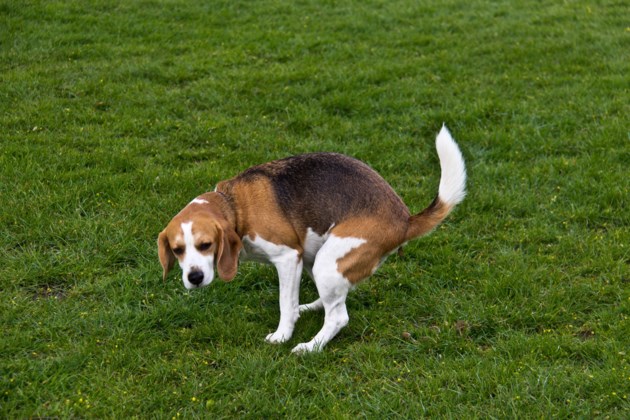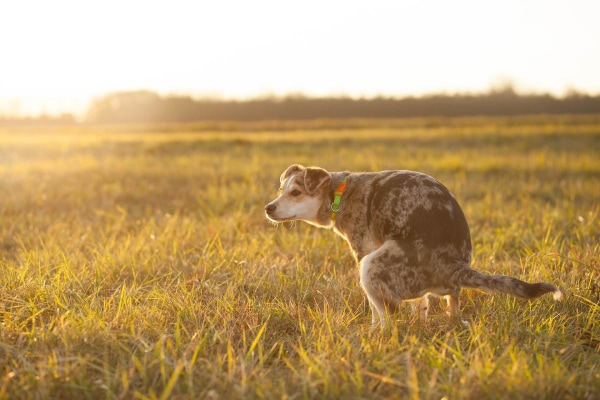Introduction
Many dog owners have faced the perplexing issue of their furry companions experiencing diarrhea, especially at night. This common concern can be worrisome for pet parents, leading them to seek answers and effective solutions. In this article, we will delve into the intricacies of why does my dog have diarrhea at night? and how to address this issue responsibly.

Understanding Canine Digestion
Dogs, like humans, have complex digestive systems that play a crucial role in their overall health. To comprehend Why does my dog have diarrhea at night, it’s essential to have a basic understanding of how their digestive process works. Various factors, such as diet, age, and health conditions, can influence digestion in dogs.
Normal Bowel Movements vs. Diarrhea
Identifying normal bowel movements in dogs is the first step in recognizing when something might be amiss. The texture, color, and frequency of feces can provide insights into a dog’s digestive health. Diarrhea, characterized by loose and watery stools, indicates an underlying problem that needs attention.
Causes of Nighttime Diarrhea in Dogs
Several factors can contribute to dogs experiencing diarrhea specifically at night. Dietary issues, parasitic infections, and underlying health conditions are common culprits. Understanding these causes is crucial in addressing the root of the problem and providing effective solutions.

Symptoms to Watch Out For
Apart from diarrhea itself, there are other symptoms that may accompany the condition. Keep an eye out for signs such as lethargy, vomiting, or changes in appetite, as these could indicate a more serious issue.
When to Consult a Veterinarian
While mild cases of diarrhea may resolve on their own, it’s important to know when to seek professional advice. Persistent or severe diarrhea can be a sign of a more significant health issue, and prompt veterinary consultation is necessary.
Home Remedies and Prevention
For mild cases, there are several home remedies that pet owners can try. However, prevention is key, and making dietary adjustments, providing proper hydration, and maintaining a healthy lifestyle can go a long way in avoiding nighttime diarrhea.

Balanced Diet for Digestive Health
A well-balanced diet plays a crucial role in maintaining a dog’s digestive health. Understanding the nutritional needs of your pet and making appropriate adjustments can contribute to overall well-being and reduce the likelihood of digestive issues.
Hydration Importance
Proper hydration is often overlooked but is vital in supporting digestive health. Dehydration can exacerbate diarrhea and lead to more severe complications, making it essential for pet owners to ensure their dogs have access to clean water at all times.
Common Mistakes in Handling Dog Diarrhea
Misconceptions about treating diarrhea in dogs abound. Avoiding common mistakes and ensuring proper care can make a significant difference in your pet’s recovery. It’s important to be well-informed and not rely on misinformation.
Veterinary Diagnostics
When faced with persistent or severe diarrhea, veterinary diagnostics become crucial. Various tests and examinations can help identify the underlying cause, enabling more targeted and effective treatment.
Treatment Options
Treatment options for dog diarrhea vary depending on the cause and severity of the condition. Medications, dietary changes, and supportive therapies may be recommended by the veterinarian to address the specific needs of the individual dog.
Monitoring and Follow-up Care
Even after initial treatment, it’s essential to monitor your dog closely and attend follow-up veterinary visits. Continued observation ensures that any lingering issues are addressed promptly, preventing the recurrence of nighttime diarrhea.
Why does my dog have diarrhea at night?
Conclusion
In conclusion, understanding why does my dog have diarrhea at night requires a holistic approach. From recognizing normal bowel movements to addressing specific causes and implementing preventive measures, responsible pet ownership is the key. By staying informed and seeking professional advice when needed, pet owners can ensure the well-being of their furry companions.
FAQS